In the Clear: Transparency in the Transfer of Credit for Prior Learning
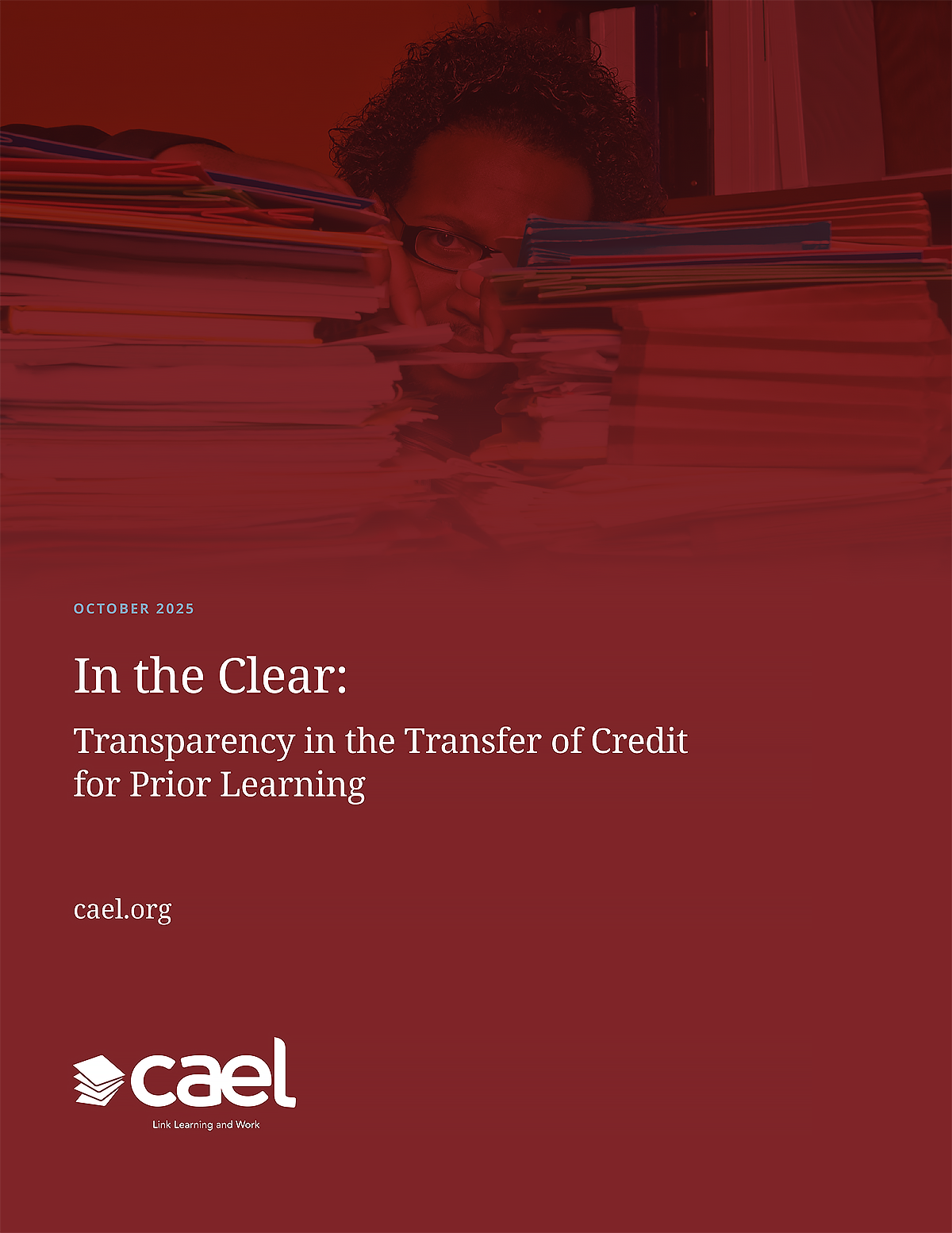

In the Clear: Transparency in the Transfer of Credit for Prior Learning
Nov 07, 2025
Accreditor Policies on Credit for Prior Learning (CPL): Guidance on CPL Provided by the Formerly Regional Accreditors, Career-Based Accreditors, and Faith-Related Accreditors
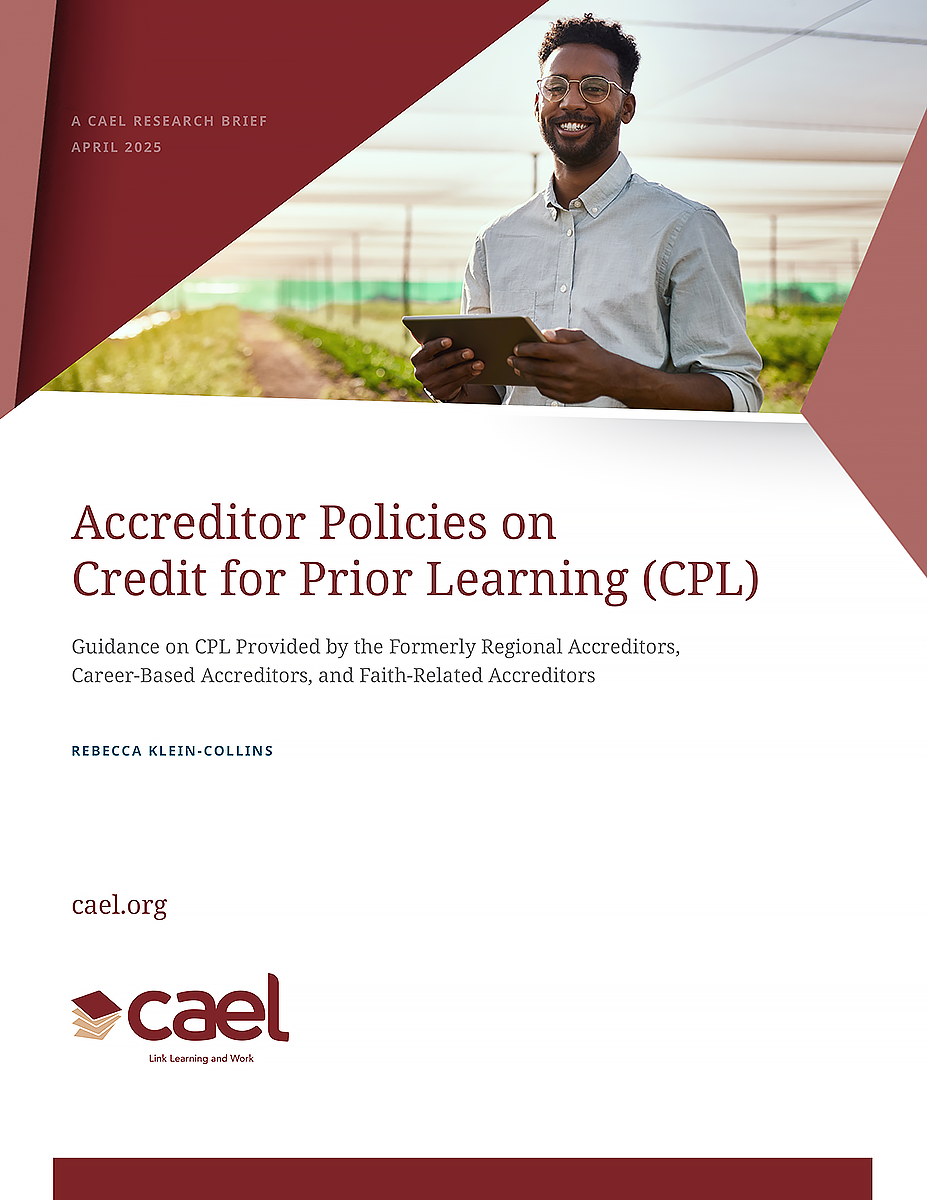

Accreditor Policies on Credit for Prior Learning (CPL): Guidance on CPL Provided by the Formerly Regional Accreditors, Career-Based Accreditors, and Faith-Related Accreditors
Apr 15, 2025
Age is Just a Number: State Policy Approaches to Supporting Older Adult Learning
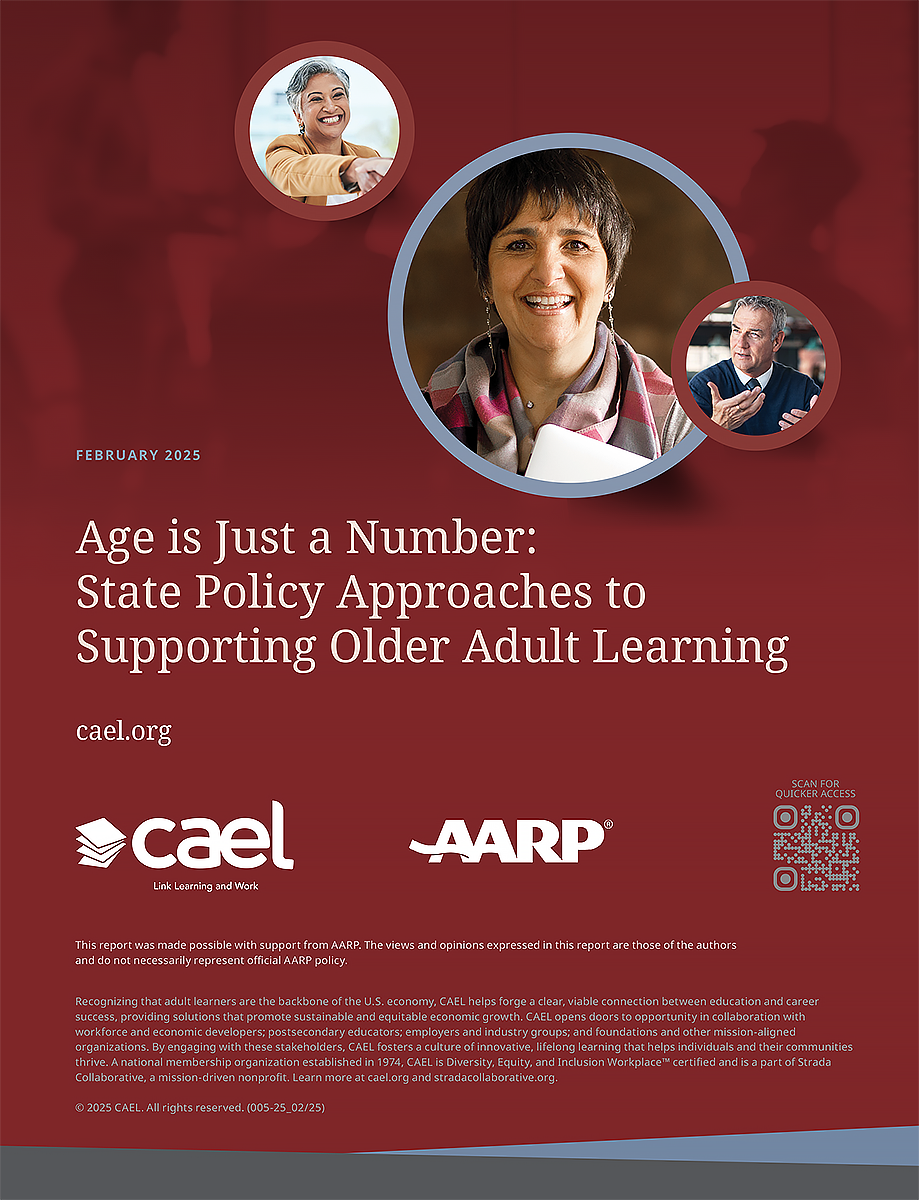

Age is Just a Number: State Policy Approaches to Supporting Older Adult Learning
Feb 20, 2025
Aging Workforce, Rising Potential: Policy and Employer Action for Older Workers
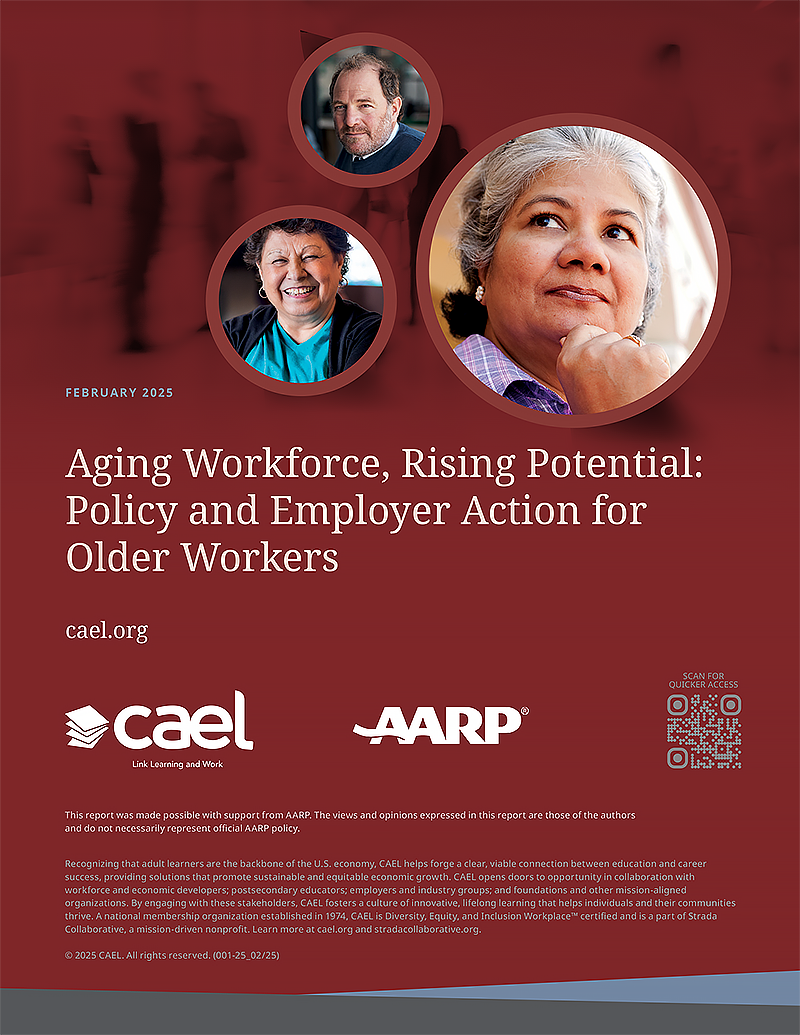

Aging Workforce, Rising Potential: Policy and Employer Action for Older Workers
Feb 06, 2025
Leveraging a Lifetime of Knowledge: How Credit for Prior Learning Can Help Older Adults and Veterans
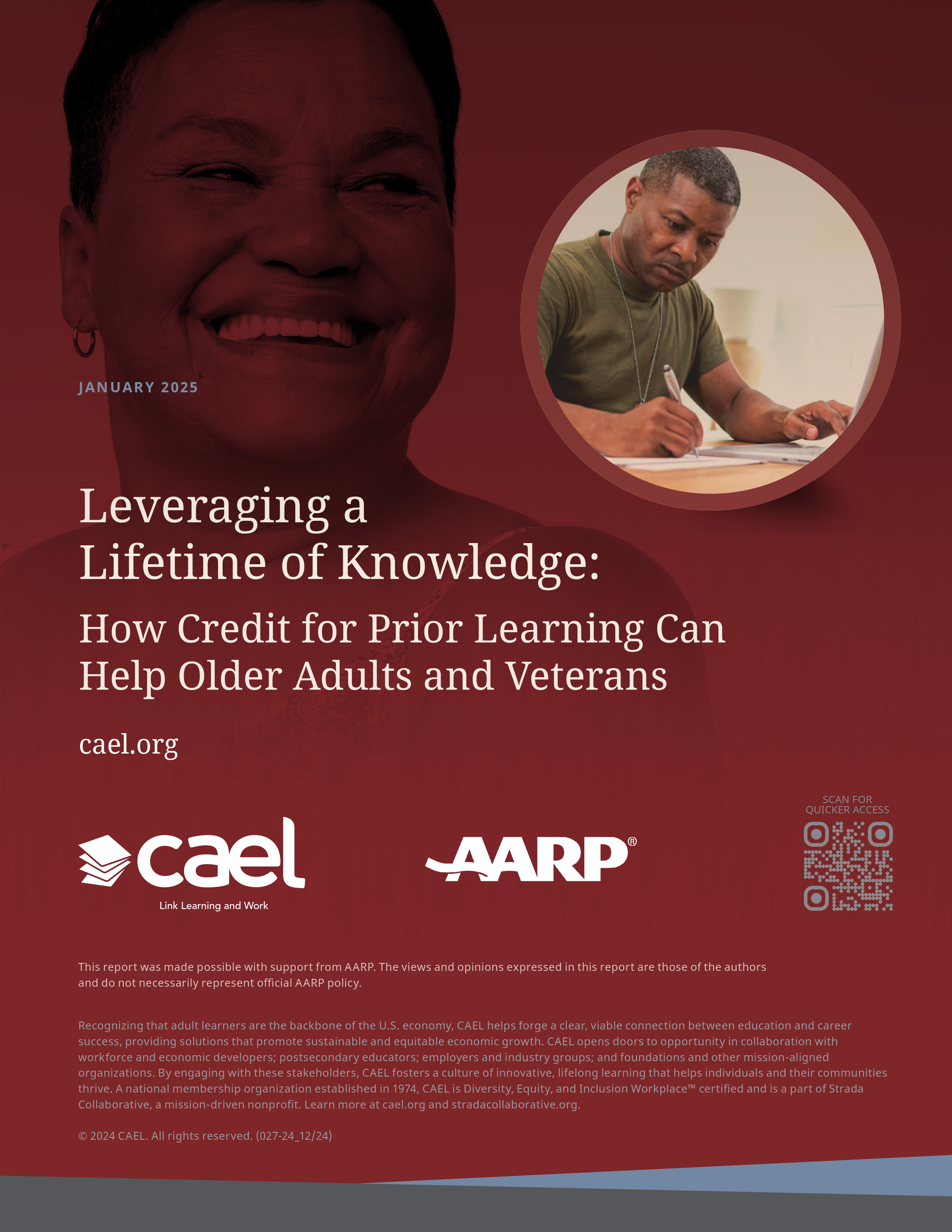

Leveraging a Lifetime of Knowledge: How Credit for Prior Learning Can Help Older Adults and Veterans
Jan 14, 2025
The National Landscape of Credit for Prior Learning: Effective State and System Policies for Success and Equity
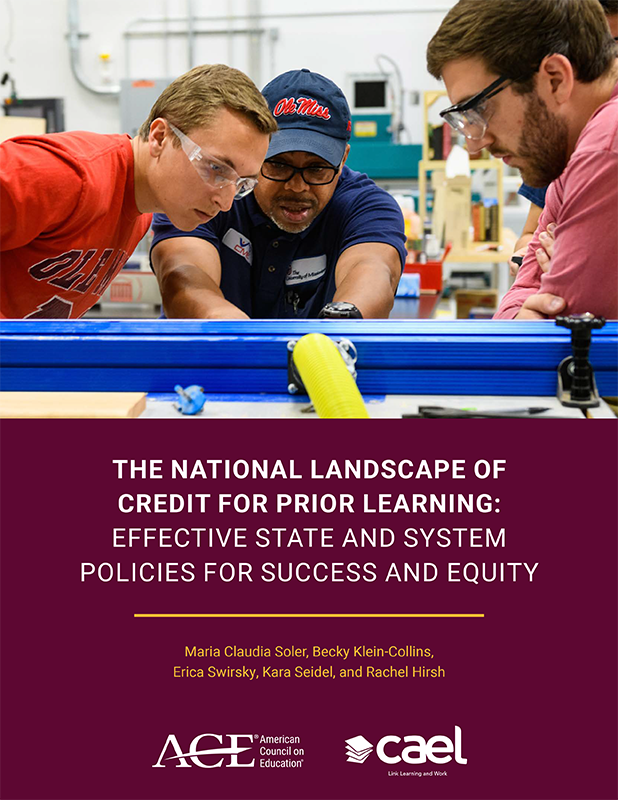

The National Landscape of Credit for Prior Learning: Effective State and System Policies for Success and Equity
Dec 17, 2024
Multiple Meanings of College: How Adult Learners Make Sense of Postsecondary Education & Why It Matters
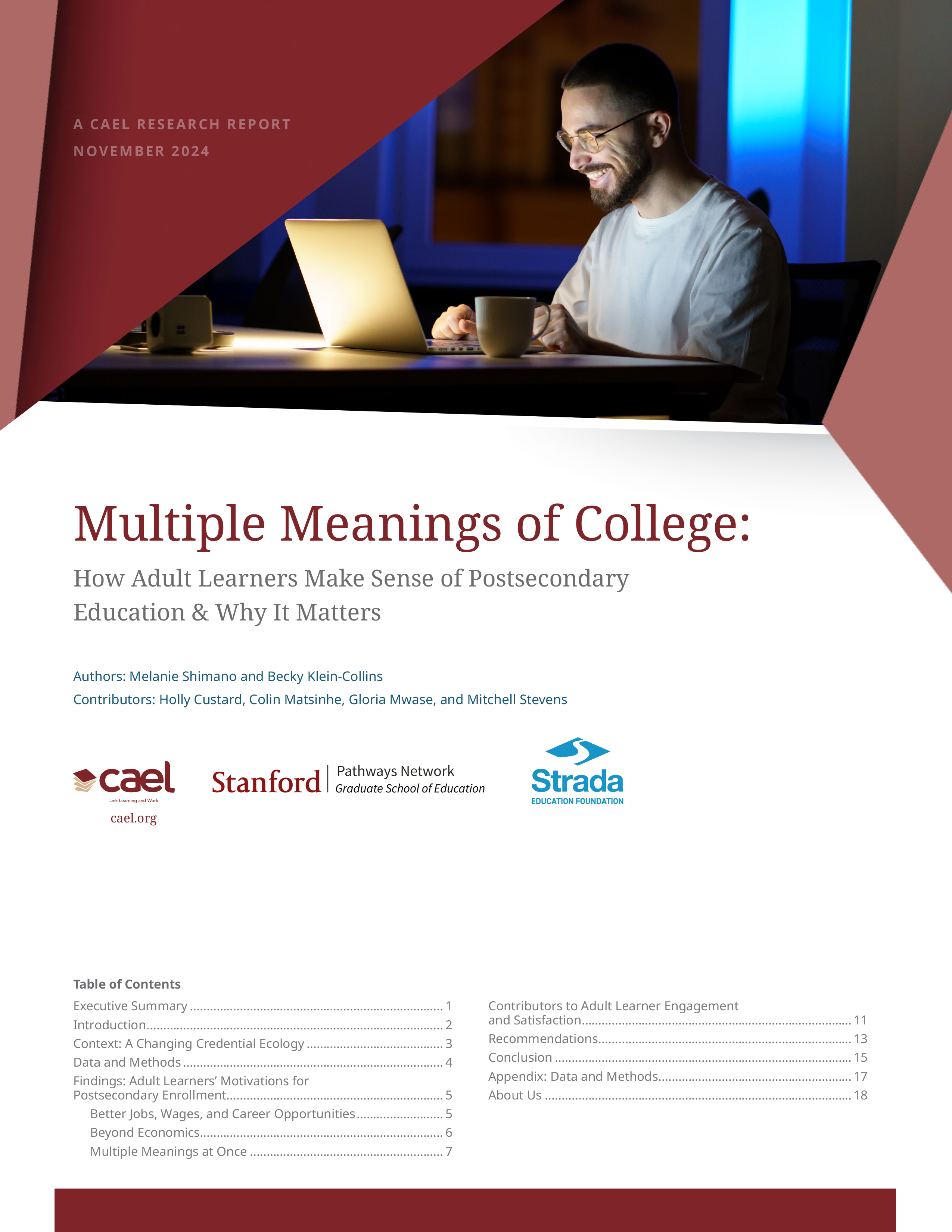

Multiple Meanings of College: How Adult Learners Make Sense of Postsecondary Education & Why It Matters
Oct 28, 2024
Latino and Adult Student Success Academy 2022-2024
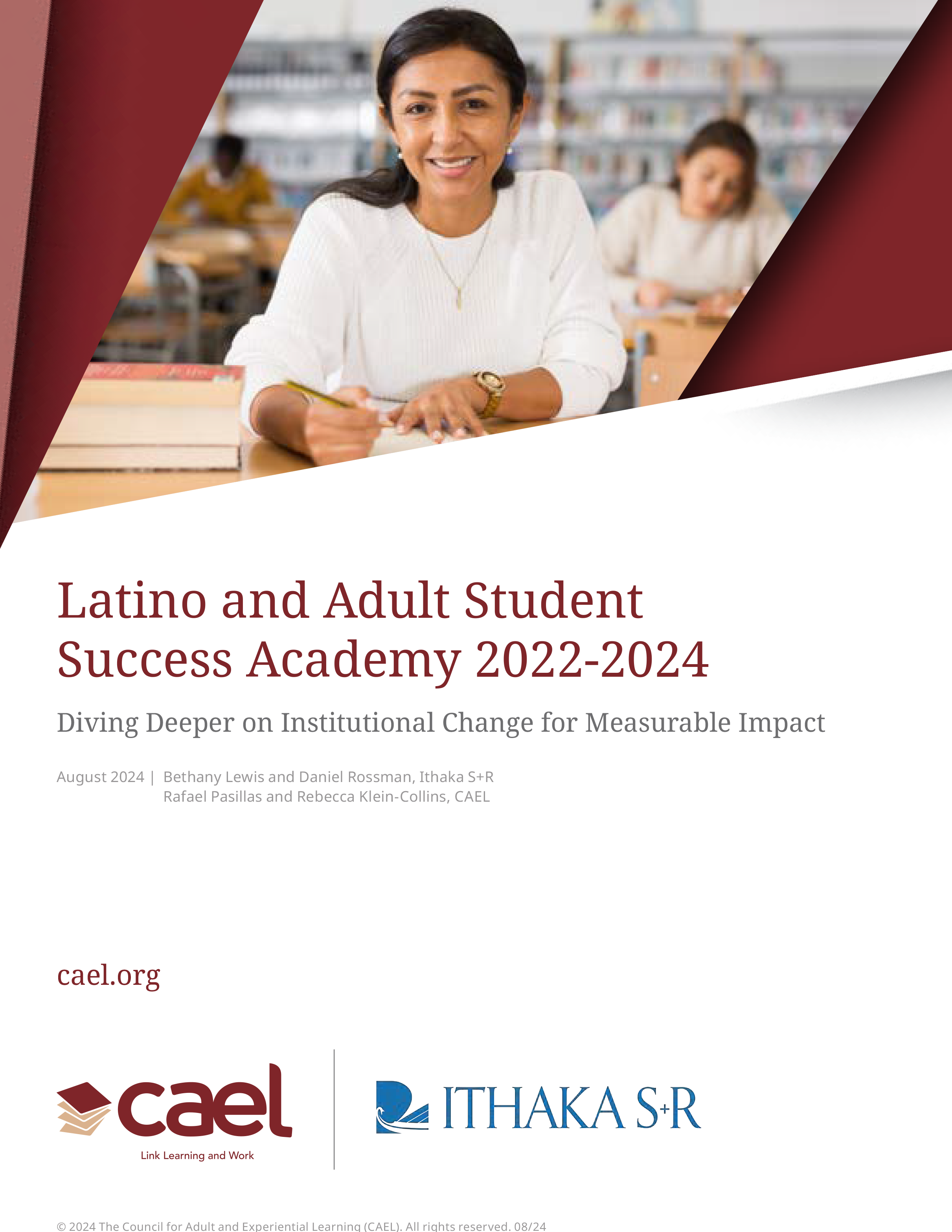

Latino and Adult Student Success Academy 2022-2024
Aug 21, 2024
Enhancing Accessibility and Inclusion: The 2024 Landscape of Credit for Prior Learning in U.S. and Canadian Higher Education
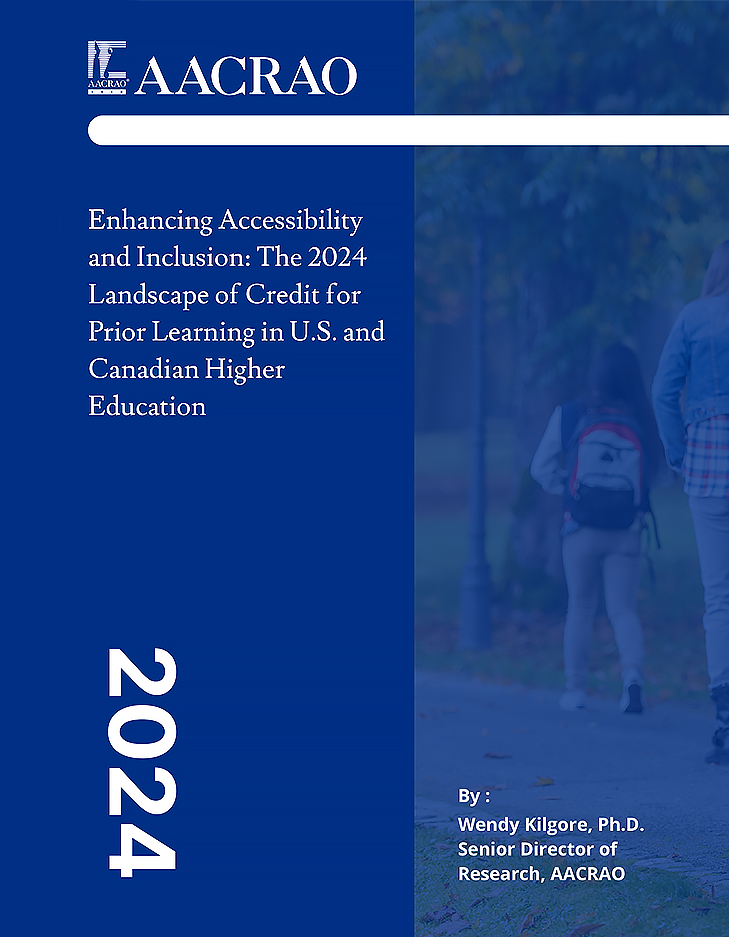

Enhancing Accessibility and Inclusion: The 2024 Landscape of Credit for Prior Learning in U.S. and Canadian Higher Education
May 22, 2024
Closing Equity Gaps in Credit for Prior Learning: Tools and Strategies To Recognize All Learning
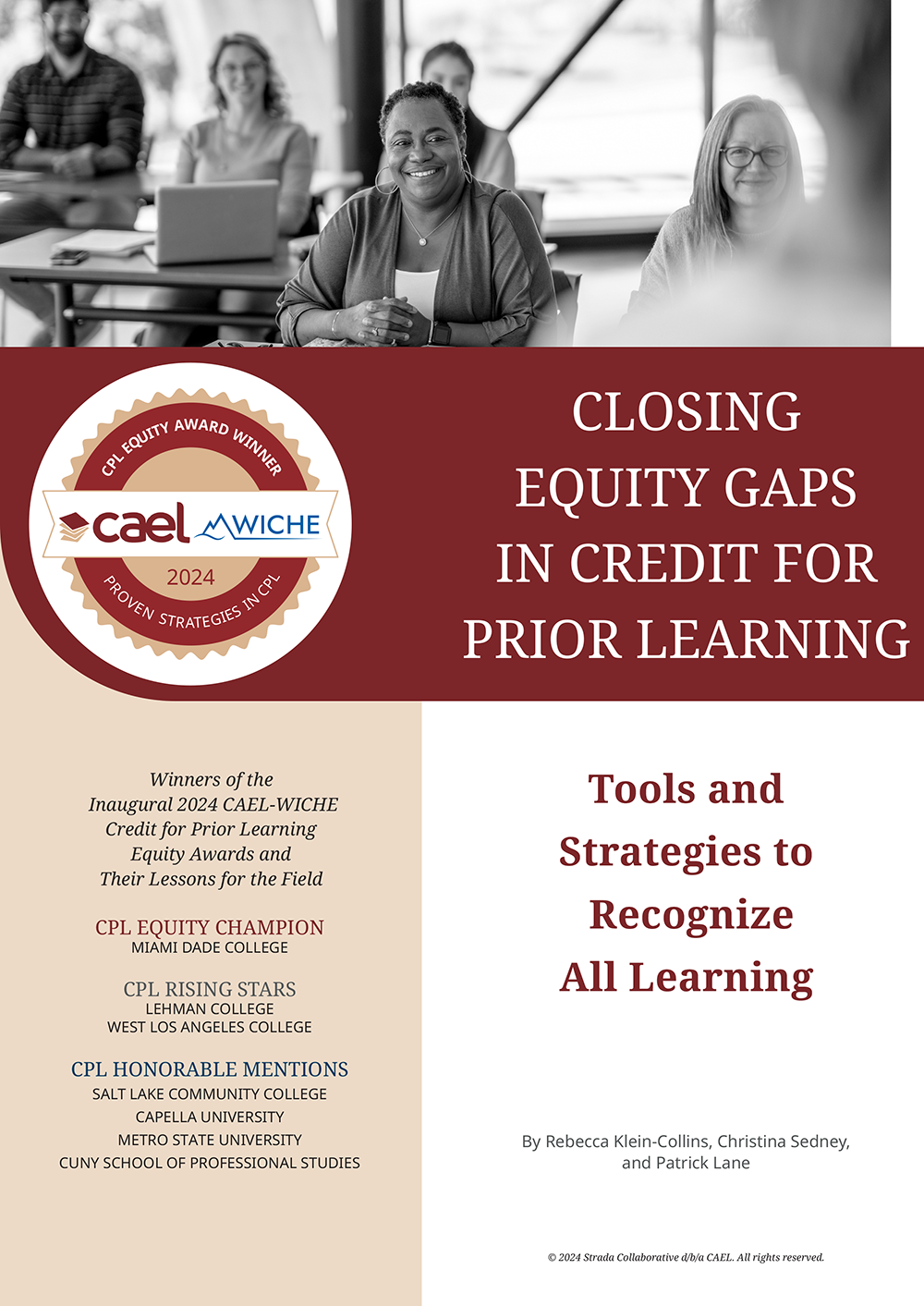

Closing Equity Gaps in Credit for Prior Learning: Tools and Strategies To Recognize All Learning
May 13, 2024
Stopping Out: It's Not About Academics - CAEL Research Brief
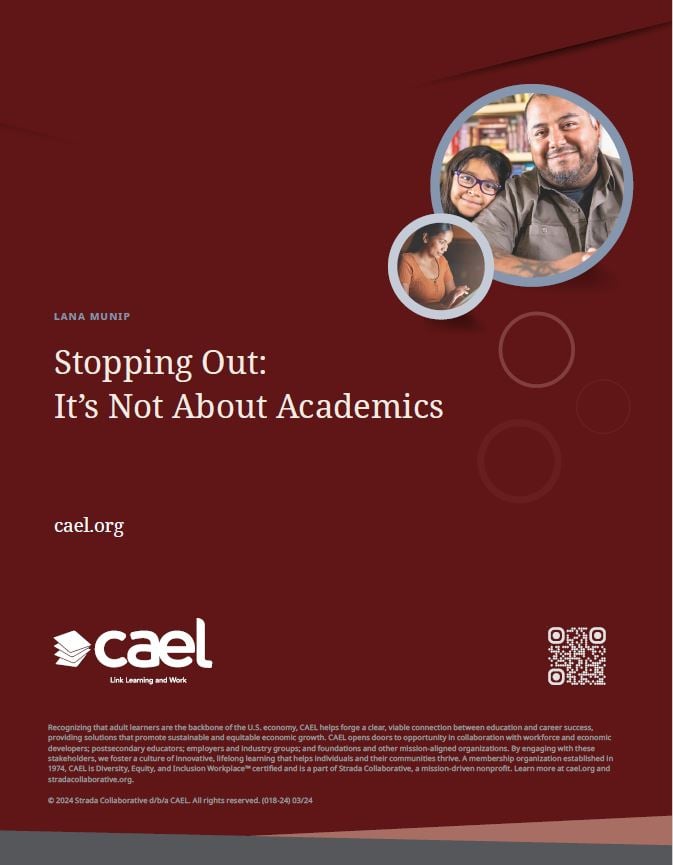

Stopping Out: It's Not About Academics - CAEL Research Brief
Apr 04, 2024
Comprehensive Learner Records - Empowering Lifelong Learning In The Digital Age 2024
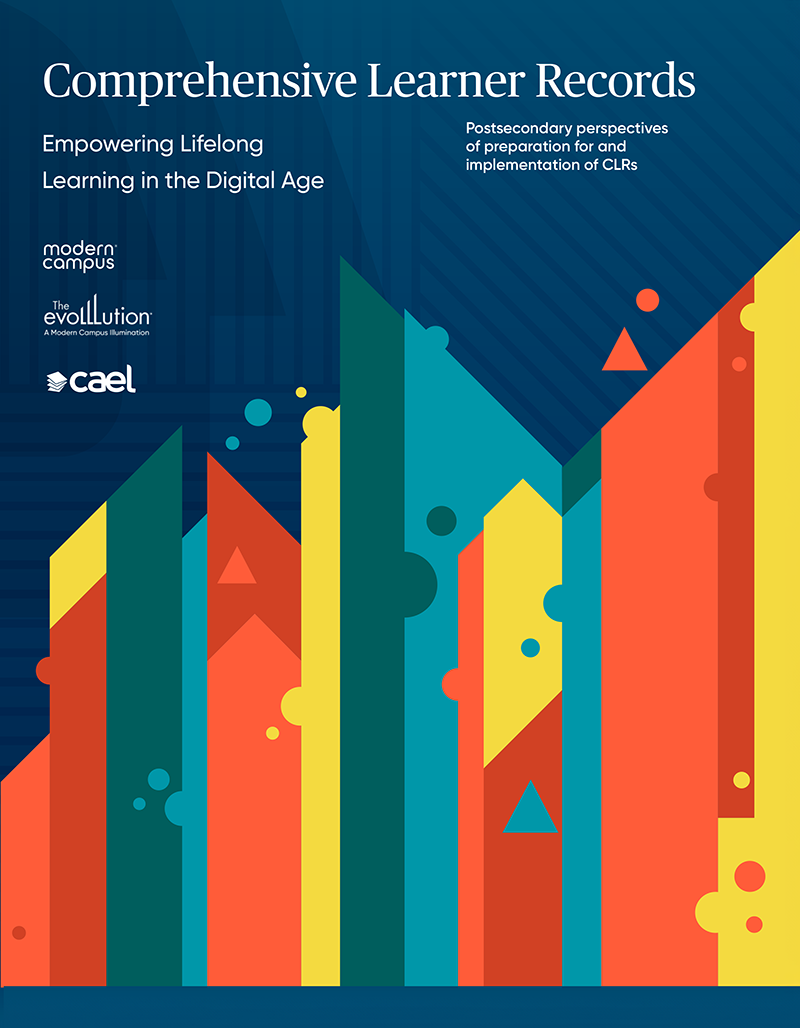

Comprehensive Learner Records - Empowering Lifelong Learning In The Digital Age 2024
Jan 17, 2024

